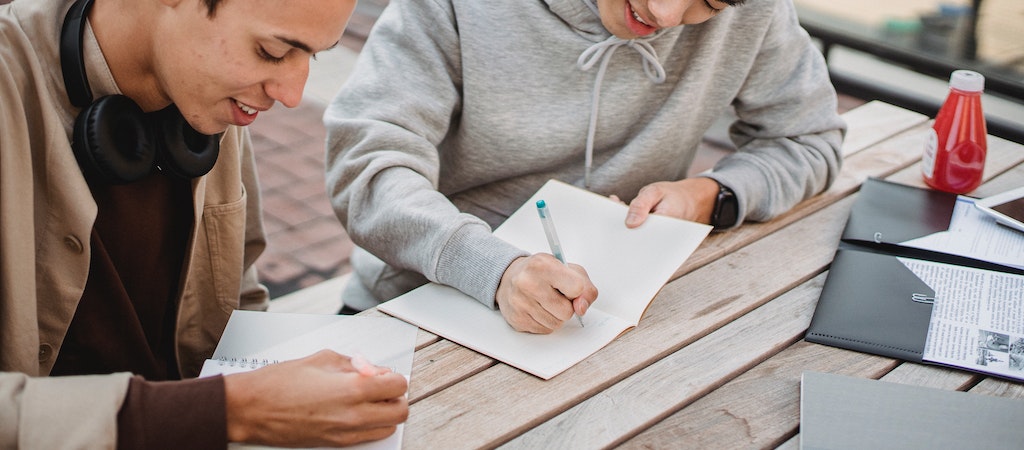
Study Abroad Experiences: Tips to Make the Most of Your Student Travels
The allure of studying abroad has beckoned students for decades, offering them a unique blend of rigorous academics and a tantalizing taste of a new culture. From wandering through historic European streets between classes to soaking in the vibrant energy of Asian metropolises, these experiences provide invaluable life lessons far beyond the confines of a classroom. The potential for personal growth, exposure to diverse perspectives, and the opportunity to forge lifelong friendships make the choice to study abroad an exciting venture for many.
However, the journey, while filled with promise, can also be rife with challenges. Adapting to a new culture, navigating the academic rigor of foreign institutions, and managing the occasional bout of homesickness requires resilience and preparation. But with the right mindset and tools, students can transform these challenges into stepping stones, crafting an enriching and unforgettable experience.
For many, the decision to study abroad is also their first foray into independent living and decision-making. The slew of preparations, especially the necessity of writing academic papers, can feel daunting, leading some to ponder, “Should I get someone to handle some tasks for me, perhaps by exploring options like writing papers for money by Writepaper?” While seeking help is always an option, being proactive and well-prepared can alleviate most concerns, setting the stage for a rewarding experience.
Pre-Departure Preparations
A successful study abroad experience begins long before boarding the plane. Immerse yourself in research about the host country. Understand its cultural norms, local customs, political landscape, and recent history. This not only ensures respect for local traditions but also helps in avoiding potential cultural faux pas.
Even if your academic program is in English, grasping the basics of the local language can be incredibly beneficial. Simple phrases, greetings, or questions can go a long way in navigating daily life, building rapport with locals, and enhancing your overall experience. Also, ensure you have the necessary visas, health insurance, and any other required documents. Check the validity of your passport and familiarize yourself with the local embassy or consulate’s location and contact details.
Reflect on what you wish to achieve during your time abroad. Whether it’s mastering a language, delving deep into a specific academic topic, or cultivating a global network, clear goals will give your journey purpose and direction.
Immersing in Academic Life
Engage in classes and group projects. Dive headfirst into your academic commitments. Participate in class discussions, collaborate on group projects, and make the most of the different teaching methodologies and perspectives. Foreign universities often have a wealth of resources, from extensive libraries to specialized workshops and seminars. Explore these facilities to enhance your academic experience.
Build relationships with your instructors. Their insights, both academic and local, can be invaluable. Also, bond with fellow students – both local and international. They will be your immediate community, support system, and potential lifelong friends. One of the perks of studying abroad is the chance to study subjects that might not be available or emphasized in your home country. Whether it’s art history in Italy or marine biology in Australia, seize the chance to broaden your academic horizons.
Embracing the Local Culture
Participating in Local Events, Festivals, and Traditions
To truly immerse yourself in the host culture, attend local events and festivals. These experiences offer a firsthand glimpse into the traditions, values, and spirit of the community. Whether it’s a lively carnival, a solemn religious ceremony, or a local arts festival, be an active participant.
Trying Out Local Cuisines and Visiting Traditional Eateries
Food is a gateway to understanding culture. Be adventurous with your palate. Try street food, dine in local eateries, and even take cooking classes if available. Discovering the flavors of the region is both delightful and enlightening.
Joining Student or Community Clubs Focused on Cultural Activities
Many educational institutions have clubs or societies that promote cultural activities, be it dance, music, arts, or even local games. Joining these can provide deeper insights into the culture and also help in building relationships with locals.
Understanding and Respecting Cultural Differences and Nuances
Remember, you’re a guest in another country. It’s essential to be observant, open-minded, and respectful of cultural differences. This approach not only prevents misunderstandings but also enriches your overall experience.
Building a Global Network
While it’s comfortable to gravitate towards fellow study abroad students from your home country, push yourself to mingle with a diverse set of peers. These relationships can offer unique perspectives, lifelong friendships, and even future professional connections. Besides academics, seek opportunities for internships or volunteer work. These experiences provide practical insights into the local work culture, help in building a global professional network, and can be invaluable for your career.
Universities and local organizations often host events, workshops, or symposiums that are great for networking. Attend these events to meet industry professionals, fellow students, and even alumni. The relationships you build while studying abroad shouldn’t end when your program does. Maintain these connections through social media, emails, or even periodic visits. They can be beneficial in unexpected ways in the future.
Personal Growth and Skill Development
Studying abroad will undoubtedly present challenges, from language barriers to adapting to new academic standards. Rather than shying away, embrace these challenges. They foster resilience, adaptability, and personal growth. The unpredictable nature of living in a foreign country will require you to adapt quickly. Whether it’s navigating public transport or resolving a misunderstanding due to language barriers, these experiences hone your problem-solving skills.
Immersing yourself in a region where a different language is spoken offers a prime opportunity to develop or enhance language skills. Even if you’re not fluent, daily practice will improve your comprehension and communication abilities. Keep a journal or diary of your experiences. It’s not just a way to document your journey but also a tool for reflection. Regularly ponder on the lessons learned, challenges faced, and personal growth achieved during your time abroad.
Safety and Well-being While Abroad
Every city has its pockets of areas that might be less safe, especially after dark. Research, ask locals, and always be aware of your surroundings.
Whether it’s a close friend, family member, or a program coordinator, ensure someone always knows where you are, especially if you’re traveling or going out for the night.
As an international student, you’re subject to the laws of your host country. Familiarize yourself with local laws, especially those that might differ significantly from your home country, and always adhere to them.
Being in a new environment can be stressful. Pay attention to your mental health, engage in physical activities, eat a balanced diet, and don’t hesitate to seek support or counseling services if needed.
Making Memories and Documenting the Journey
Documenting your experiences, feelings, and observations can be therapeutic. It also serves as a wonderful memento of your time abroad. Pictures capture memories in a way words often can’t. They’re tangible reminders of your journey and the connections you’ve made.
Whether it’s a postcard, a piece of art, or even a ticket stub, collecting mementos helps you remember and cherish specific moments from your time abroad. Keep your friends and family in the loop about your adventures. Share stories, pictures, and learnings. This not only keeps you connected but also helps them vicariously experience a different culture.
Final Thoughts
Studying abroad is a transformative journey that offers unparalleled opportunities for academic enrichment, personal growth, and cultural immersion. However, much like embarking on a major research project where one might seek the best paper writing service, the success of a study abroad experience hinges on preparation, adaptability, and a thirst for knowledge. Each challenge faced and connection made while abroad adds a unique layer to a student’s global perspective, preparing them for an increasingly interconnected world.
As students pack their bags and set forth on this adventure, it’s essential to remember that the true value of studying abroad goes beyond the classes attended or tourist spots visited. It lies in the melding of academic pursuits with personal experiences, resulting in a holistic education that shapes informed, empathetic, and globally-conscious individuals.
Daily Newsletter
Subscribe to Jebiga for a dose of the best in gear, design, rides, tech and adventure.






